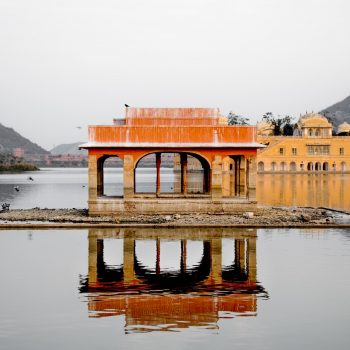Sustainable Tourism: Balancing the needs of the fastest growing hospitality market in the world
The World Travel and Tourism Council predicted this month that within the next decade India will be the fourth largest tourism economy worldwide, snapping at the heels of China, the United States and Germany. The Report makes a particularly interesting finding that this trend is not just driven by increasing numbers of international business and tourist travelers: significant growth is being driven from within the subcontinent itself, fueled by India’s rapidly expanding middle class and an increasingly technology literate young population who are quicker than ever to reach for their smartphones to book a holiday. Domestic travel is now the real catalyst for change in a burgeoning hospitality sector with a striking 90% of travelers being Indian Nationals.
No surprise then that In May of this year domestic airlines on the subcontinent reported a 16.53% growth in passenger numbers compared to the same month in 2017, with the Directorate General of Civil Aviation confirming that Indian carriers had transited no less than 11.9 million passengers during that single month. Across the board scheduled carriers flew to an impressive 80% occupancy with Spicejet leading the way at a 94.8% load factor.
These are hugely significant trends for the future of India’s economy, with the hospitality sector having already accounted for more than $230 Billion of the subcontinent’s GDP in 2017 (up from $209 Billion the previous year) and no suggestion that current unprecedented rates of growth in the sector are likely to slow anytime soon.
This pattern of exponential growth shouldn’t come as a surprise to anyone: India has 36 world heritage sites, 103 National Parks (with the Taj Mahal thrown in for good measure) as well as Goa’s beaches, the foothills of the Himalayas and an astonishing breadth of wildlife from tigers and elephants to snow leopards. All of that is bound to attract tourists in large numbers, but such rapid tourist growth can of course bring its own problems, as anyone struggling through St Mark’s Square in mid August can testify. Growth of the wrong kind can threaten the fragile ecostructure of the very locations proving to be so popular with tourists, to such an extent that some of India’s tiger reserves no longer have any tigers to see.
More than 30,000 plastic bottles are left behind each summer by tourists in the high altitude Himalayan Ladakh desert of Jammu and Kashmir and on Mount Everest itself eight to ten tons of waste are left behind on the mountain every year: everything from empty oxygen bottles to rucksacks, tents and discarded climbing equipment.
So there is a balance to be struck: recognising the importance the hospitality sector now has for the subcontinent’s economy, but at the same time striving to support unprecedented growth within the sector in a manner that is sensitive to the needs of India’s precious ecosystem. This is the principal reason for the success of Eco Hospitality as a key driver of India’s mid market hospitality sector: not just because it is the only model striving to get this critical balance right, but because the majority of those travelling on the subcontinent now recognise the risks greater tourist numbers are posing to the natural habitat and are actively seeking out accommodation that supports its preservation.
Red Ribbon Asset Management is the founder of Eco Hotels, the world’s first carbon neutral mid market hotel brand, offering “green hospitality” as part of a progressive roll out across India which is intended to take full advantage of current market opportunities on the subcontinent. The brand offers sustainable living without compromising on standards of hospitality and is designed to cater to commercial and recreational travelers alike.
[nectar_btn size="large" open_new_tab="true" button_style="regular" button_color_2="Accent-Color" icon_family="none" url="http://ecohotels.in/" text="Eco Hotels UK Plc"][nectar_btn size="large" open_new_tab="true" button_style="regular" button_color_2="Accent-Color" icon_family="none" url="https://redribbon.co/investment-products/" text="Products"]
Red Ribbon CEO, Suchit Punnose said:
No surprise indeed that tourists are flocking in unprecedented numbers to the natural beauties and historic splendorous of the subcontinent, but it is still striking to learn just how significant a part internal tourism is playing in buoying up India’s resurgent hotel and hospitality sector. It’s certainly an area which can’t be overlooked in seeking out the best investment opportunities over the coming years and that’s why I’m proud Red Ribbon has played such a significant role in the creation and deployment of the Eco Hotels Project across the subcontinent.
As the article points out, tourists and business travelers alike are looking increasingly for hotel accommodation that is compliant with requirements of eco sustainability, and as the world’s first carbon neutral hotel brand, Eco Hotels are spearheading the need to meet that demand. It not only makes good sense for the environment, it makes good business sense too.
[social_buttons full_width_icons="true" facebook="true" twitter="true" google_plus="true" linkedin="true" pinterest="true"]








Leave a Reply